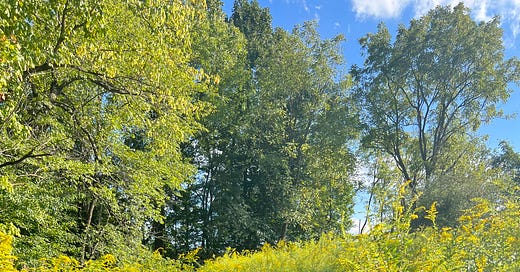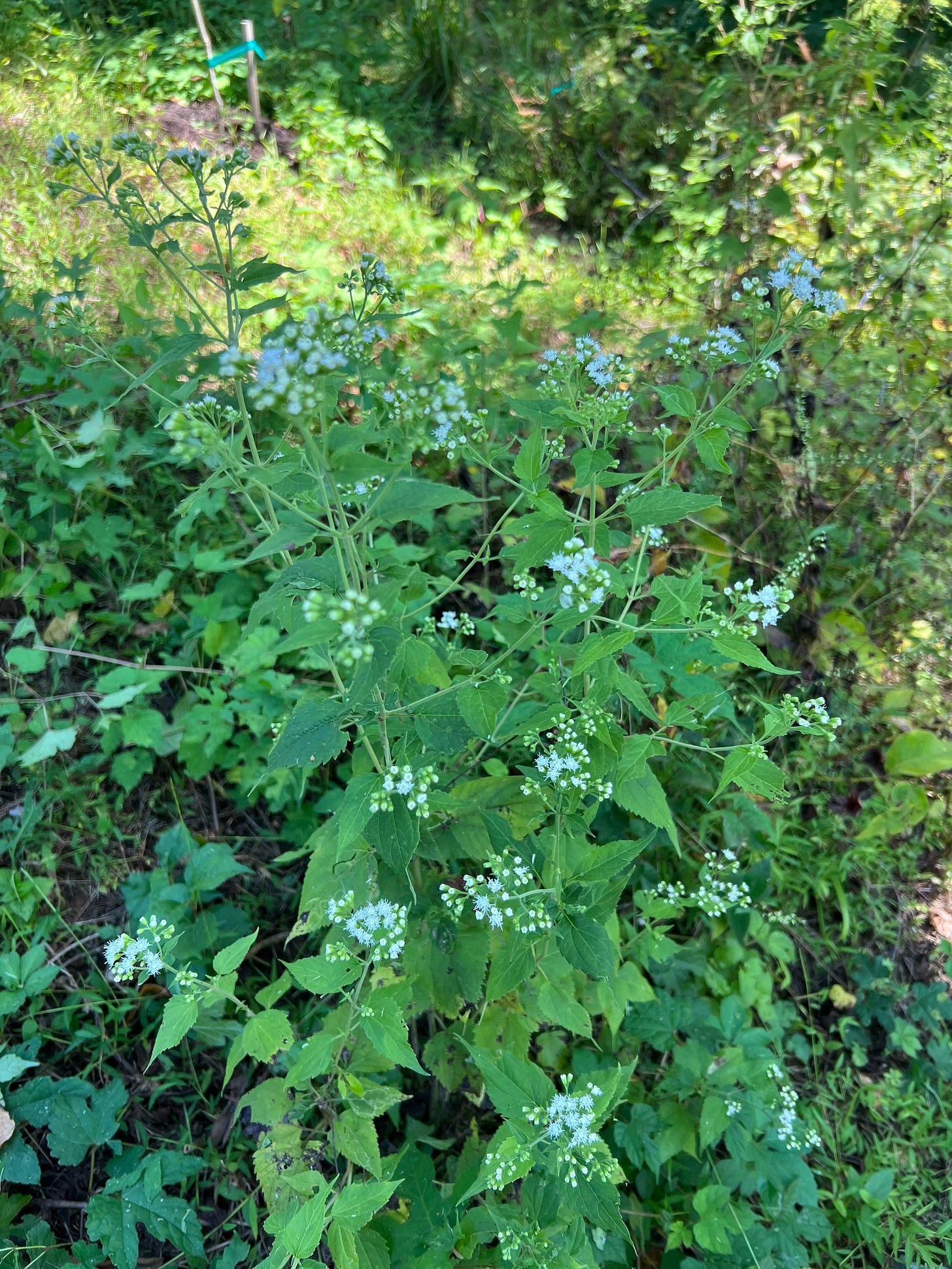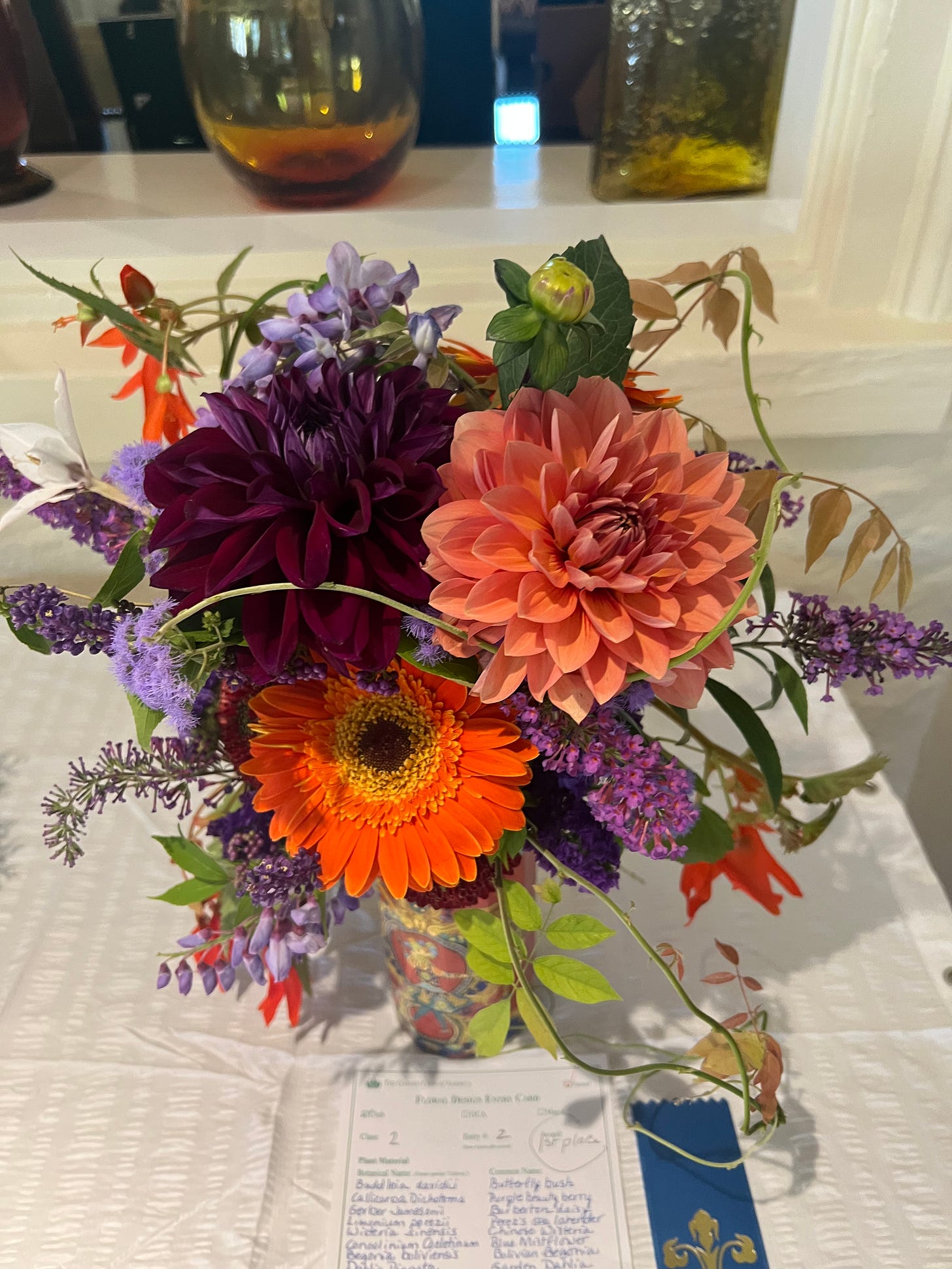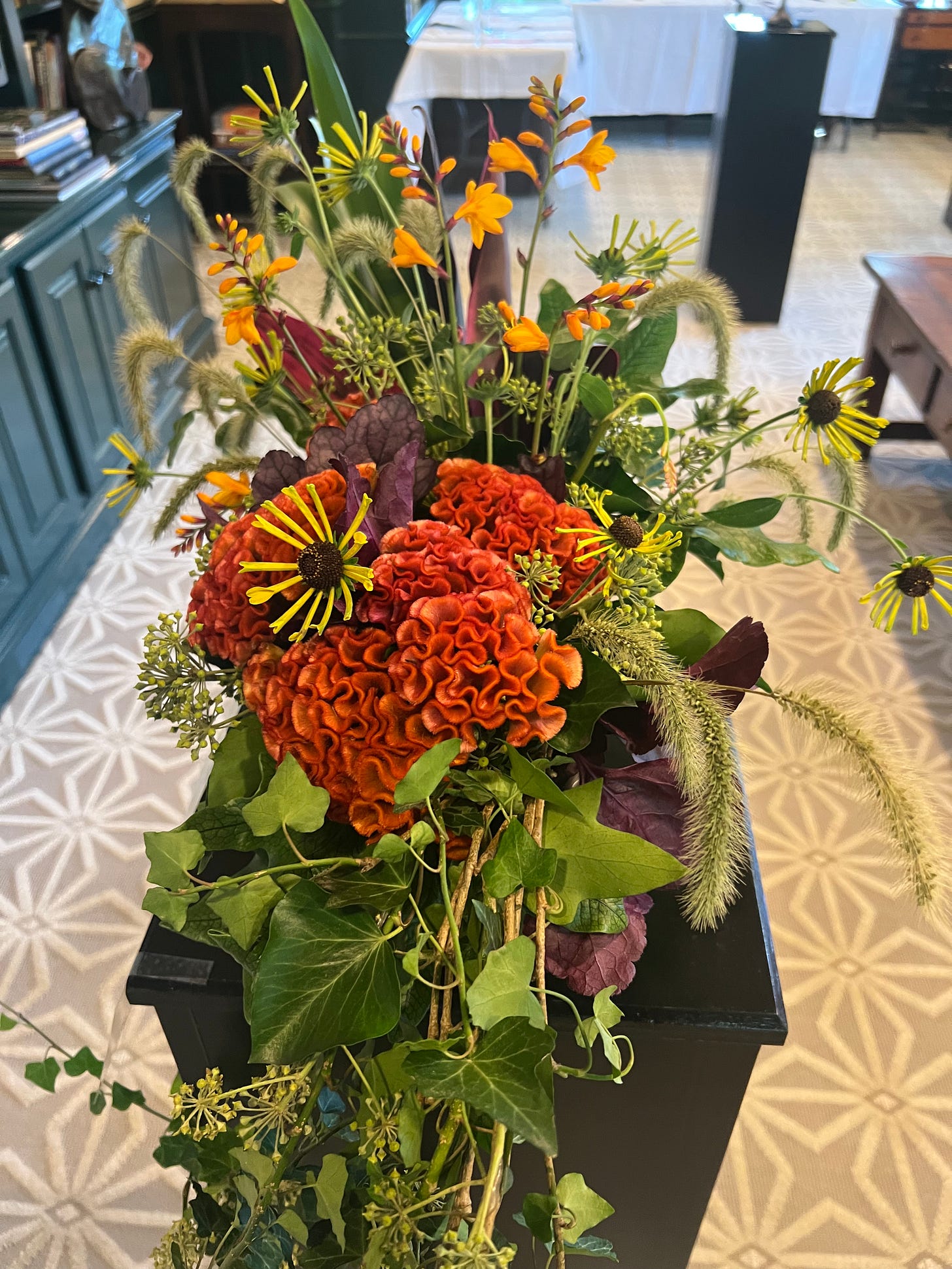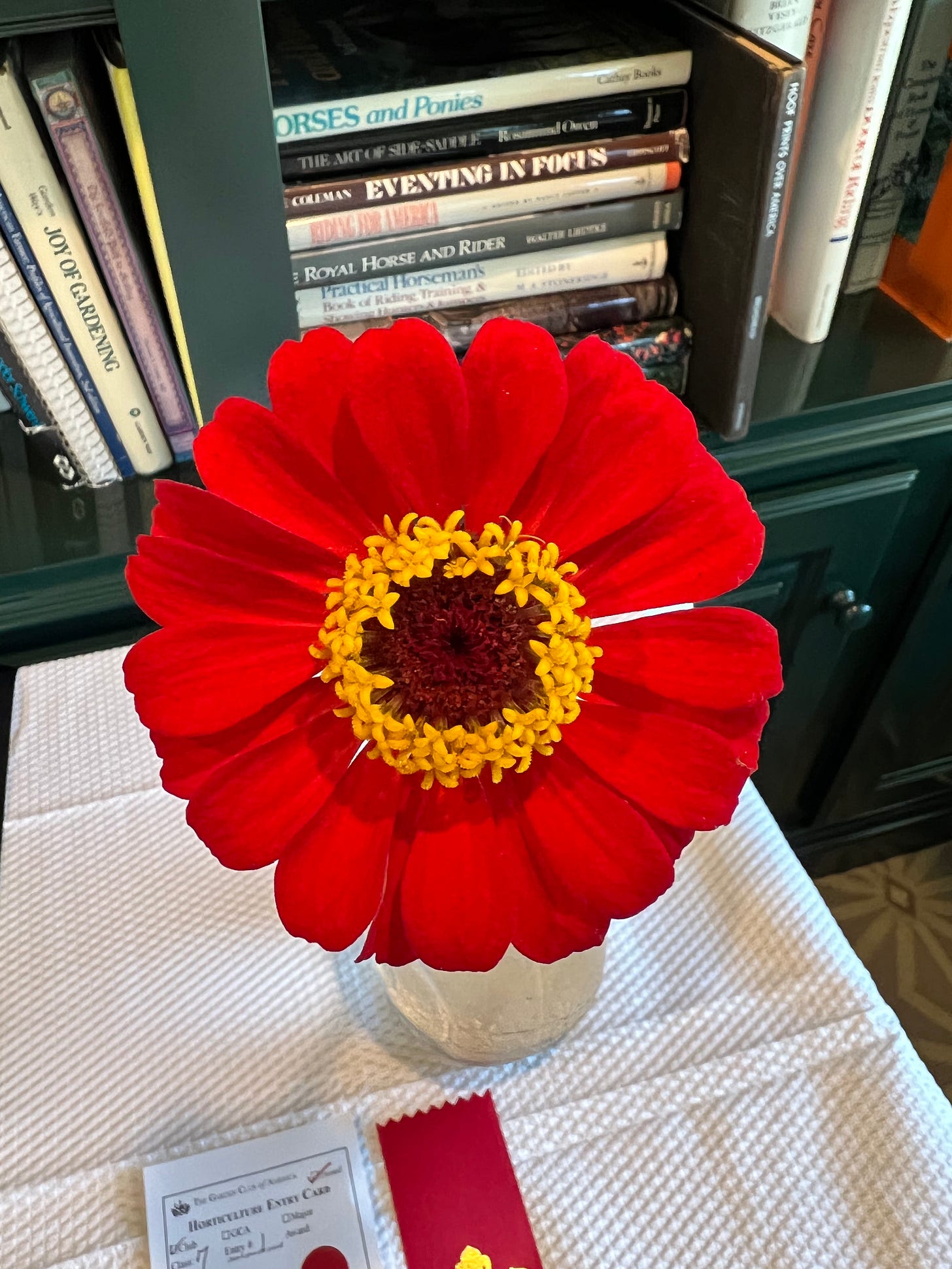Prizes and Prices
Puddock Hill Journal #23: We hosted the wonderful Garden Club of Wilmington this week, which got me thinking about awards and their consequences.
Yesterday, we hosted the Garden Club of Wilmington’s annual flower show and cocktail party at Puddock Hill.
The day began with organized chaos as exhibits rolled in and were placed on display throughout the house. Then judges arrived, enjoyed lunch, and selected their favorites. One of the dahlias from Pam’s raised bed garden, a late entry, won a first-place ribbon, much to our surprise and delight. (Judging is blind, so no fix was in!) That evening, our new patio served as the venue for cocktails surrounded by new garden beds stocked with native perennials, grasses, and shrubs.
As Pam was away during the morning on a conflict, yours truly helped smooth the glide path when requested by club leaders and competition entrants. I had nothing to do with matters horticultural this day, but it was fun to watch things unfold.
At one point, I opened the door to the arrival of a pair of judges who complimented the property and asked whether they could have a walk about. I promptly began to explain how they could stroll down the barn path…
…where several varieties of native Goldenrod (Solidago spp.) are in bloom…
…and have a look at the native White snakeroot (Ageratina altissima) just coming into its own along the upper big pond path.
“No.” One of the judge’s shook her head in a way that implied, “You poor dear.” She pointed through the French doors to splashes of bright color in the raised bed cutting garden. “We had that in mind.”
Ohhh.
I should have known. While the Garden Club of America, to its credit, has been active in supporting native plants (their mission statement even pledges to “restore, improve, and protect the quality of the environment”), when the chips are down most gardeners can’t resist showiness.
On that score, the entries did not disappoint. Here are a few:
But the brief encounter got me thinking about the nature of judged competitions and how they can skew what we consider beautiful.
My mind jumps to dog shows and how their emphasis on certain traits over generations is said to have led to malformations, such as hip dysplasia, that affect the health and wellbeing of certain dog species. Might we be doing something similar when we breed plants solely to emphasize traits that please our eyes?
I am writing this on the porch on a beautiful late-summer afternoon. The birds are active all around, fattening up for fall migration. They flit in and out of the native Chokeberry (Aronia spp.), whose spring flowers are attractive but far from showy. They go mad for the American pokeweed (Phytolacca americana) at the edge of the field, a plant that one would be hard pressed to find at a garden nursery. All the while, they and the butterflies ignore the giant flower heads of the Panicled hydrangea (Hydrangea paniculata), native of Asia, that grows nearby.
No doubt, this time of year, the hydrangea would draw the attention of the judges. In fact, there was a sample of one on the kitchen counter yesterday with a ribbon beneath it.
Of course, I am being a little hard on the show endeavor, mainly for effect. There is room in this big world both for appreciation of the carefully bred adorable French bulldog (we’ve had two) and the wild African dog. There is room for the showy exotic cultivar and the more subtle native flower. Indeed, I have no doubt that most garden club members appreciate both.
But it is also worth remembering when we plant an exotic for its showiness how much we have already tipped the balance against our native backyard ecology. If the judges who inquired about walking the garden had been wearing more practical shoes and I’d felt less intimidated, I might have replied, “By all means go check out the colorful dahlias in the raised beds. But also take a moment to observe nature’s creation just up the path.”
While I was writing, a solitary Potter or Mason wasp (Eumeninae spp.) was squeezing into a gap behind a nearby doorknob.
Although they are said to be docile, I’m glad it happens to be a door we don’t use!
